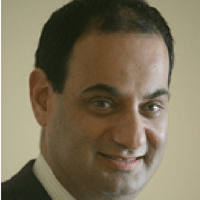When Treasurer Scott Morrison announced the 3 May budget with its extra imposts on superannuation, I suspect he knew there would be an averse reaction from the Liberal Party faithful. These rusted-on supporters probably suspected the budget would contain a few superannuation “nasties” (after all, there had been more leaks than the Möhne Dam after the Dambusters raid in 1943), but I suspect even they did not expect such a package, especially with the limits imposed on concessional and non-concessional contributions.
But I also suspect the hard heads in the Liberal Party had done their homework and quickly figured that those Liberals outraged by the changes to superannuation (after all, they had been told by Labor and Liberal parties in 2013 that no major changes were being contemplated) were either in safe Liberal seats, thereby discounting any protest vote, or these supporters to vote Labor was a bridge too far anyway.
If the Liberals (in partnership with the National Party) win the 2 July poll, this strategic thinking will prove correct. For a government looking to further revenue measures post the election, the precedent will be set: taxing superannuation at the high end is relatively politically painless, as well as winning plaudits from the many analysts and commentators in the community who see superannuation concessions as fundamentally iniquitous.
It will be no different with Labor. Indeed, it could easily be worse.
Up until recently, Labor policy was to tax superannuation earnings above $75,000, effectively targeting SMSFs. But now Labor has announced it will abandon its policy of taxing superannuation earnings and has (quietly) adopted the Liberal policy of changing concessional and non-concessional, right down to the extent of including the revenue savings in its forward fiscal estimates. In other words, it’s letting the Liberals wear all the opprobrium in the run-up to the 2 July poll for this policy initiative – but will happily pick up the revenue it offers if it wins government.
The Liberals, of course, are saying little. Even though Labor has adopted its policies, the last thing the government wants in the last week of the election campaign is to reignite the superannuation debate.
There’s another aspect to this. When the number crunchers did the figures, the general consensus was that Labor’s policy would generate more income for the government’s coffers in a bull market when returns are high (the ballpark figure was about a 6 per cent return), while the Liberals’ policy would generate more revenue when returns are low.
Call me cynical, but it’s hard to see in the current low interest rate environment (and post-Brexit and the growing possibility of a Trump presidency, can anyone foresee higher interest rates in the short and even medium term?) super funds generating returns in excess of 6 per cent. This particularly applies to SMSFs in the pension phase where the primary focus is on income, not capital growth. To reinforce this essentially negative message on super fund returns, Future Fund chairman Peter Costello has called for a lowering of the sovereign wealth fund’s targeted return for this very reason.
But if these scenarios under a Liberal or Labor government are enough to keep SMSF trustees awake at night, then try and imagine how much worse it will be if Labor wins the Treasury benches in coalition with the Greens.
The Greens have made no bones about their strong opposition to the concessional nature of our superannuation system, seeing this as prime revenue source. Labor might protest but if it’s part of a package needed to form government then I suspect it would sign up, comfortable in the knowledge that SMSF trustees are not part of its natural constituency.
For SMSF trustees, the 2 July poll really is shaping up as “heads I lose, tails I lose”.

George Lucas, managing director of Instreet Investment




and yet neither are going far enough. Costello took super tax concessions (and various other cuts and sales) too far. Those that have high balances certainly do not need further assistance when superannuation contribution tax is already highly regressive.
Have you not seen Mercers review of total government support for retirees by income decile? Guess who gets the most? It’s not the low income earners!
This country needs to return to having a government that works in the interest of the whole of Australia, and foremost the majority over the minority. Anyone that works in this industry and peddles self interest pieces that criticise that purpose should be ashamed.